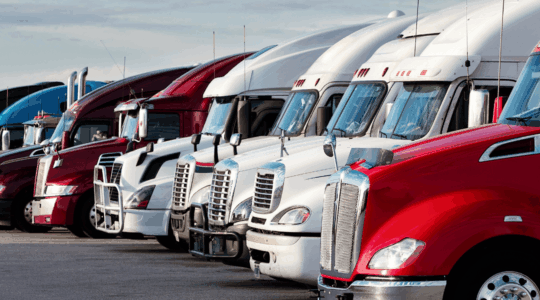Transportation
The Benefits of Telematics for Commercial Fleets
Improve fleet safety, reduce costs and optimize driver performance with telematics technology.
February 5, 2025
Managing your fleet and drivers is a challenge, particularly given the potential for accidents, employee injuries, liability concerns and increased costs associated with vehicle upkeep. Nevertheless, your fleet—whether it be a handful of cars or dozens of commercial vehicles—plays a major role in the success of your organization. As such, it’s crucial to take a proactive approach to fleet and driver management.
To help accomplish this, most businesses with this exposure have deployed or are researching telematics systems. Proactive management of these systems assists in reducing numerous fleet risks, improve efficiency and promote safe driving behaviors. This blog provides an overview of telematics and the benefits that this technology can provide for your organization.
The Basics of Telematics
Telematics is a form of vehicle software that combines the features of telecommunications and informatics to help employers effectively manage and monitor their fleet. This software operates by connecting to telematics devices installed in a vehicle, including GPS technology, sensors, mobile applications, dashcams and vehicle engine diagnostics solutions. Common data collected by vehicle telematics software includes:
- Vehicle speeds
- Vehicle locations
- Diagnostics data related to fuel efficiency and vehicle performance
- Driving behaviors (e.g., braking intensity or acceleration frequency)
- Routes
- Distracted driving incidents (e.g., smartphone usage)
Telematics can be used in a variety of commercial vehicles, including cars, cargo vans, tractor-trailers, buses and heavy equipment. Many employers use this technology to monitor vehicle deliveries, determine routes, communicate with drivers, review employee driving practices and detect vehicle maintenance concerns.
Why Your Fleet Needs Telematics
Utilizing telematics software can benefit your fleet by:
- Reducing Operational Costs: Telematics keeps drivers informed about traffic concerns, road hazards, and rerouting options while helping locate preferred gas stations. These features collectively maximize fuel efficiency and lower operational expenses.
- Coaching Safe Driving Habits: Telematics provides detailed data points for safety coordinators to discuss directly with drivers. This includes both positive feedback and areas for improvement, fostering better relationships and respect between safety teams and drivers.
- Fostering Driver Competition: Many systems enable drivers to view their safety scores and compare them to others within the fleet, encouraging healthy competition.
- Bolstering Fleet Security: Advanced tracking and communication features help keep your fleet secure. Telematics can locate stolen vehicles, simplify recovery processes and enable advanced security measures like passcode requirements. Drivers can also use telematics to alert authorities quickly in emergencies, sharing their exact location when accidents occur.
- Ensuring Vehicle Maintenance: Telematics detects current or upcoming maintenance concerns, such as engine issues or diagnostics. Alerts are sent to both drivers and maintenance staff, streamlining preventive maintenance and improving fleet upkeep.
- Reducing Administrative Costs: By digitizing manual records, telematics simplifies reporting on expenses, driver performance, maintenance and fuel costs. It also streamlines driver recognition programs with consistent, recordable data.
Partnering With Hylant for Risk Management Support
Hylant provides tailored insurance and risk management solutions designed to meet the unique needs of the transportation industry. From fleet safety and compliance to claims advocacy and loss control, we help protect your business and support your success.
For additional insurance and loss control guidance, contact Hylant today.
Wondering how telematics can help your organization enhance fleet safety, reduce costs and improve efficiency?
Download our Benefits of Telematics infographic to learn more.
The above information does not constitute advice. Always contact your insurance broker or trusted advisor for insurance-related questions.


